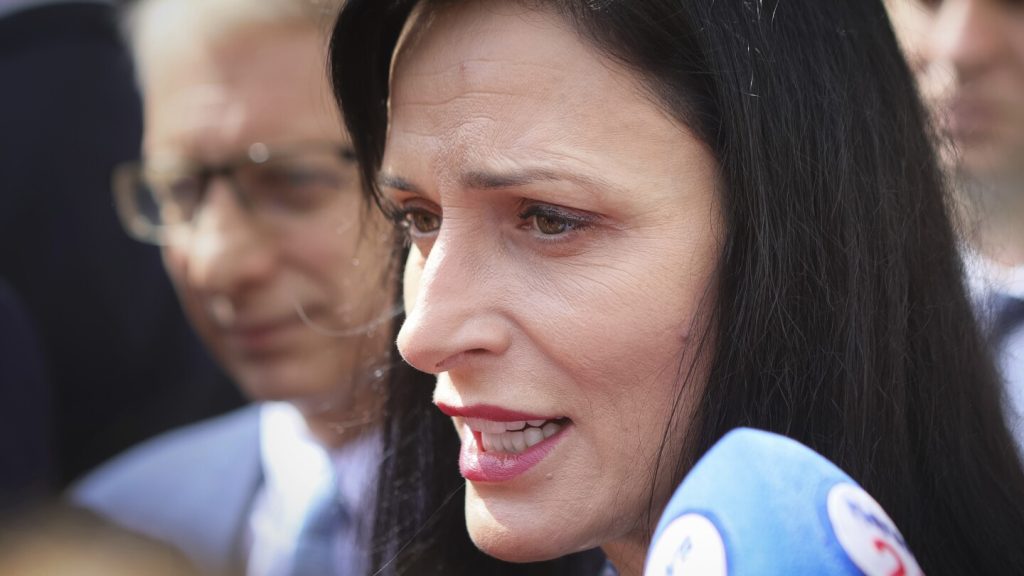The prime minister-designate of Bulgaria, Maria Gabriel, has withdrawn her nomination after negotiations between two political coalitions failed. This decision could potentially throw the European Union’s poorest member country into a new crisis. Gabriel, a former EU commissioner, had been proposed by the largest group in parliament, the center-right GERB-UDF coalition, to form a new government. However, it was revealed that Bulgaria was heading towards early elections after the failure of the negotiations.
The negotiations between the GERB-UDF coalition and the reformist coalition led by We Continue the Change had been ongoing for two weeks. Initially, the two political rivals had agreed to a rotation system where each coalition would hold the position of prime minister for nine months at a time. Following the agreement, outgoing Prime Minister Nikolay Denkov of the reformist coalition stepped down on March 6, with the expectation that Gabriel would take over. However, the transition of power did not go smoothly, and both coalitions ended up accusing each other of sabotaging the negotiations.
The breakdown of the talks was attributed to partisan disputes over issues related to judicial reform, leadership of the security services, and the composition of Gabriel’s Cabinet. In a televised address, Denkov urged the GERB-UDF coalition to uphold their end of the agreement and vote for a government instead of plunging the country into chaos. The failure to reach a consensus has left Bulgaria in a state of uncertainty, with the possibility of early elections looming large.
The withdrawal of Maria Gabriel’s nomination as prime minister-designate has raised concerns about the stability of Bulgaria’s government and its impact on the country’s future. As the poorest member of the European Union, Bulgaria is facing economic challenges and needs a stable leadership to navigate through these turbulent times. The failure of the negotiations between the two political coalitions has further complicated the situation and created a sense of political instability within the country.
The upcoming early elections in Bulgaria will be crucial in determining the future path of the country and its relationship with the European Union. The outcome of the elections will have far-reaching implications for Bulgaria’s economy, political landscape, and international standing. It is imperative for the political parties to come together and prioritize the interests of the country over their own political agendas in order to ensure a smooth transition of power and a stable government moving forward.
As Bulgaria grapples with the aftermath of Maria Gabriel’s withdrawal and the failure of the coalition negotiations, the country’s citizens are looking towards their political leaders for direction and stability. The upcoming elections will serve as a litmus test for the resilience of Bulgaria’s democracy and its capacity to overcome political challenges. It is crucial for all parties involved to prioritize the well-being of the nation and work towards a consensus that will benefit the country as a whole in the long run.


